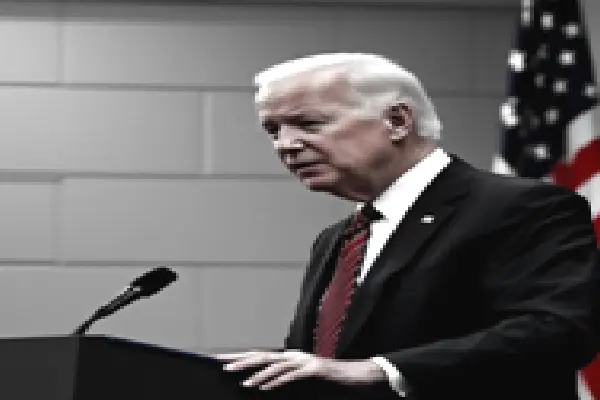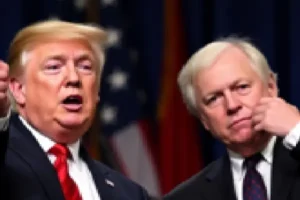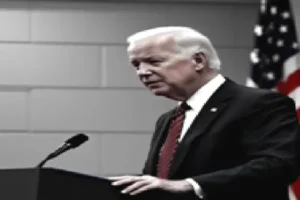“Commutations: Biden Reduces Federal Death Sentences.”

In a groundbreaking decision, President Joe Biden announced the commutation of 37 federal death row sentences to life imprisonment without parole. This move significantly reduces the number of federal inmates awaiting execution to just three, as President-elect Donald Trump prepares to assume office next month. The announcement underscores Biden’s long-standing opposition to capital punishment and reflects his administration’s broader efforts to reform federal justice practices.
Commutations Exclude Three High-Profile Federal Cases.
While the majority of federal death row inmates benefited from the commutations, three individuals convicted of high-profile crimes were notably excluded. These include Dzhokhar Tsarnaev, one of the perpetrators of the Boston Marathon bombing; Dylann Roof, who carried out a racially motivated mass shooting in Charleston, South Carolina; and Robert Bowers, responsible for the deadly attack at Pittsburgh’s Tree of Life Synagogue. Biden emphasized that the exclusions align with his administration’s policy to maintain federal execution moratoriums except in cases involving terrorism or hate-driven mass violence.
Federal Moratorium Supports Biden’s Commutations Decision.
“These commutations are consistent with the moratorium my administration has imposed on federal executions,” Biden explained in his statement. The Justice Department, under Attorney General Merrick Garland, has upheld this policy by refraining from seeking the death penalty in new cases. However, the department has maintained death sentences in certain cases, including those involving Tsarnaev and Roof. Biden’s decision reflects his belief that the federal government should move away from capital punishment as a form of justice.
Lesser-Known Crimes Dominate Commutations Announcement.
The commutations primarily affect inmates convicted of crimes that received less public attention, such as murders tied to drug trafficking or acts of violence within prison systems. By focusing on these cases, Biden highlighted the systemic issues in the federal sentencing process and the disproportionate application of the death penalty. Advocates for criminal justice reform have long argued that capital punishment disproportionately affects marginalized communities, further underscoring the significance of Biden’s actions.
Biden’s Experience Shapes Federal Commutations Policy.
“Guided by my conscience and my experience as a public defender, chairman of the Senate Judiciary Committee, Vice President, and now President, I am more convinced than ever that the federal death penalty must end,” Biden declared. His decades-long career in public service, coupled with his moral convictions, has shaped his opposition to the death penalty. Biden emphasized that his decision to commute these sentences was driven by a desire to prevent future administrations from resuming executions that he halted.
Trump’s Plans Challenge Biden’s Commutations Strategy.
Biden’s announcement arrives amidst growing concerns over Trump’s potential return to the White House. Trump has made clear his intention to reinstate federal executions and expand the scope of crimes eligible for capital punishment. During his previous term, Trump’s administration executed 13 federal inmates in the final seven months of his presidency, marking the end of a 17-year hiatus on federal executions. His proposed policies include applying the death penalty to crimes such as human trafficking, drug-related offenses, and the killing of law enforcement officers.
Advocates Push for Broader Federal Commutations.
Advocacy groups, including the American Civil Liberties Union (ACLU), have called on Biden to expand his commutations further. In a recent letter signed by over 130 civil and human rights organizations, the ACLU urged Biden to address systemic injustices within the federal death penalty framework. Anthony Romero, executive director of the ACLU, described the federal death penalty system as inherently racist and unjust. Biden’s allies, such as Senator Chris Coons, have also encouraged the president to evaluate commutations on a case-by-case basis to ensure fairness and uphold the values of justice and equality.
Historic Commutations Reflect Biden’s Justice Vision.
Biden’s decision follows a series of historic clemency actions, including the commutation of over 1,500 sentences earlier this month in the largest single-day act of clemency in modern U.S. history. These actions reflect Biden’s commitment to reshaping the federal justice system and addressing the systemic inequities that have long plagued it. While his commutations cannot affect state-level death row cases, which account for over 2,000 individuals, they mark a significant step toward ending capital punishment at the federal level.
Commutations Signal Biden’s Broader Justice Reforms.
Biden’s commutations are part of a broader effort to reform the federal justice system and reduce the reliance on capital punishment. By commuting the sentences of 37 individuals, Biden has set a precedent for future administrations to reconsider the use of the death penalty. As debates over the morality and efficacy of capital punishment continue, Biden’s actions serve as a powerful statement about the values of justice, fairness, and humanity in the United States.
This comprehensive approach to commutations highlights the president’s dedication to creating a more equitable justice system, even as political challenges loom on the horizon.
Read this also.
“Durbin Accuses Justices of Ethics Violations.”








